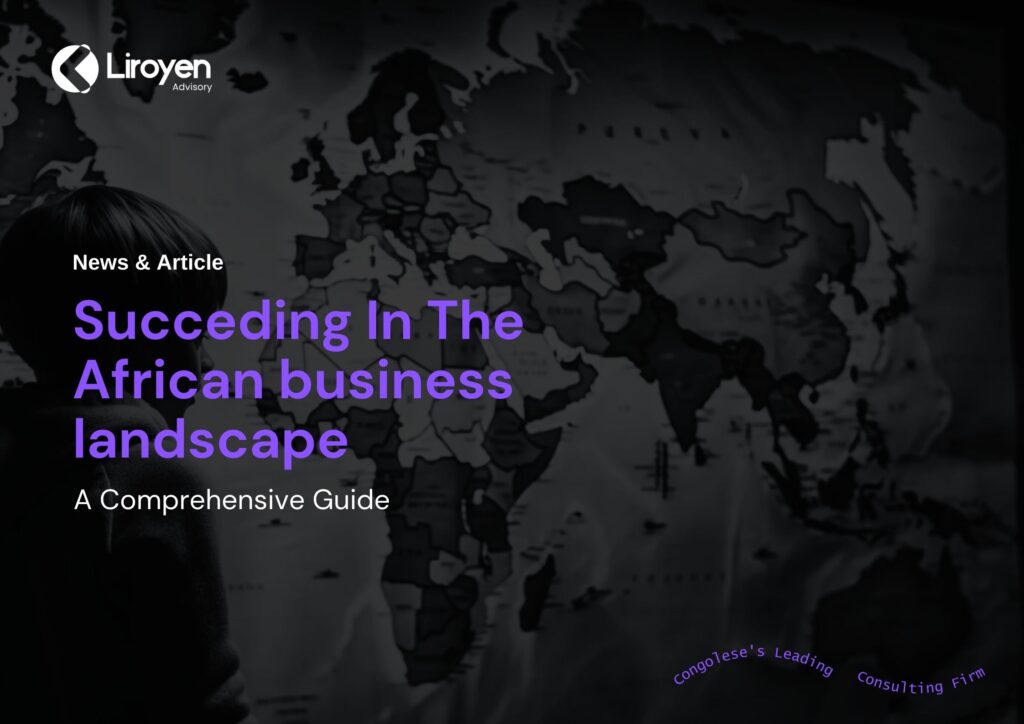Introduction
Africa, with its diverse cultures, languages, and economies, presents a unique and dynamic business landscape. For entrepreneurs and established companies seeking to tap into the immense potential the continent offers, understanding the nuances of the African business landscape is not just beneficial but often a prerequisite for success. In this comprehensive guide, we will delve into the key aspects of comprehending and navigating the intricate tapestry of the African business environment.
Diversity Beyond Borders
Cultural Mosaic
Africa is not a monolith; it is a rich mosaic of cultures, languages, and traditions. Each country, and sometimes regions within countries, boasts its own unique cultural identity. Understanding and respecting these diversities is essential for businesses operating on the continent. From communication styles to consumer preferences, cultural insights shape successful market entry strategies.
Example: In Nigeria, where over 250 ethnic groups coexist, a beverage company successfully tailored its marketing strategy by recognizing the cultural significance of local ceremonies and festivals.
Economic Disparities
While Africa is home to some of the world’s fastest-growing economies, economic disparities among countries can be stark. The economic landscape ranges from advanced economies to emerging markets and countries facing significant developmental challenges. For businesses, this means a need for flexible and adaptive strategies that consider the economic context of each target market.
Example: South Africa, with its well-developed infrastructure, contrasts with countries like Chad, which faces infrastructural challenges. An e-commerce platform successfully adapted its logistics strategy, offering innovative last-mile solutions in regions with limited infrastructure.
Regulatory and Legal Dynamics
Navigating Legal Frameworks
Africa’s legal frameworks vary widely, and the regulatory environment can pose challenges for businesses unfamiliar with local laws. Each country has its own set of rules governing business operations, employment, taxation, and industry-specific regulations. Navigating this complex legal landscape requires meticulous research and often local legal expertise.
Example: A multinational energy company faced challenges in the Democratic Republic of Congo (DRC) due to evolving regulations in the mining sector. Engaging local legal counsel helped the company adapt its operations to stay compliant.
Political Stability and Risks
Political stability varies across African nations, and businesses must assess the political climate in each target market. Political instability can pose risks to operations, supply chains, and investments. Understanding the political dynamics, historical contexts, and potential risks is crucial for making informed business decisions.
Example: A tourism company considering expansion in Kenya conducted thorough research on the political landscape, allowing them to anticipate and mitigate potential disruptions to their operations.
Market Research and Consumer Behavior
Diverse Consumer Behaviors
Understanding the consumer behavior of diverse populations is fundamental for market success. African consumers, influenced by cultural, social, and economic factors, exhibit diverse preferences and buying patterns. Conducting comprehensive market research helps businesses tailor their products and marketing strategies to local tastes.
Example: A global fast-food chain successfully localized its menu in Morocco, incorporating traditional flavors and adapting portion sizes to align with local preferences.
Technological Adoption
While some regions in Africa may lack advanced technological infrastructure, the continent is witnessing rapid technological adoption. Mobile technology, in particular, has become a powerful tool for communication, commerce, and financial transactions. Businesses need to leverage technology trends while considering the digital divide that exists in certain areas.
Example: A fintech startup in Kenya capitalized on the high mobile penetration rate by developing a mobile banking solution, offering financial services to previously underserved populations.
Infrastructure Challenges and Opportunities
Logistical Considerations
Infrastructure challenges, including transportation, energy, and telecommunications, are prevalent in some African markets. Businesses must carefully evaluate the logistical landscape to optimize supply chains and distribution networks. Innovative solutions often arise from understanding and addressing these challenges.
Example: An e-commerce giant in Nigeria optimized its logistics by establishing partnerships with local delivery services and leveraging technology to navigate infrastructural gaps.
Energy Accessibility
Access to reliable energy varies widely across the continent. While some regions benefit from well-established energy infrastructure, others face frequent power outages. For businesses, this necessitates developing energy-efficient strategies and exploring alternative energy sources.
Example: A manufacturing company in Ghana reduced operational costs and enhanced reliability by investing in solar energy solutions.
Building Sustainable Partnerships
Local Partnerships and Networks
Building strong partnerships with local businesses, suppliers, and communities is a key success factor in the African business landscape. Local partners provide invaluable insights, navigate cultural nuances, and enhance the credibility of foreign businesses.
Example: An international agricultural company partnered with local cooperatives in Ethiopia, fostering community engagement and ensuring sustainable and ethical sourcing practices.
Corporate Social Responsibility (CSR)
CSR is not just a buzzword but a meaningful strategy for businesses operating in Africa. Companies that actively contribute to community development, environmental sustainability, and social welfare often find greater acceptance and support from local communities.
Example: A mining company in Sierra Leone implemented CSR initiatives, including education and healthcare programs, fostering positive relationships with local communities.
Conclusion
Navigating the African business landscape is a multifaceted endeavor that demands a deep understanding of the cultural, economic, regulatory, and infrastructural dynamics that shape each market. Successful businesses approach Africa not as a single entity but as a continent rich in diversity and potential.
For those willing to invest time and effort in comprehending the complexities of the African business environment, the rewards can be immense. From vibrant consumer markets to untapped opportunities, Africa offers a canvas for innovative and adaptive businesses to thrive.
In conclusion, success in the African business landscape requires more than just a market entry strategy; it demands a holistic and nuanced approach that embraces diversity, respects local contexts, and contributes positively to the communities it serves. As businesses embark on this journey, the key lies in not just understanding Africa but in becoming an integral part of its evolving narrative.

